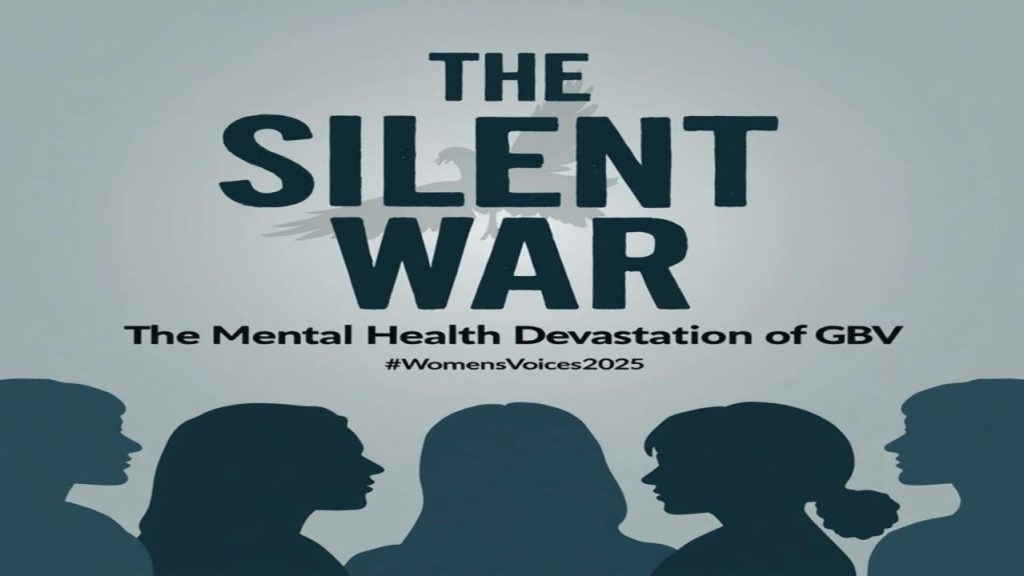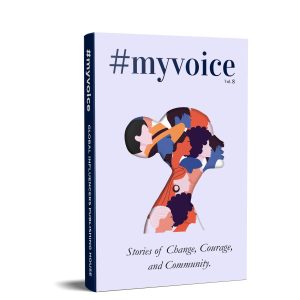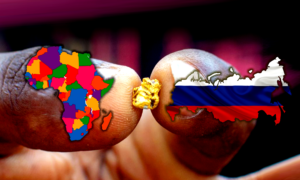The Silent War: The Mental Health Devastation of GBV #WomensVoices2025

We have been conditioned to see the visible marks of gender-based violence (GBV)—the bruises, the broken bones, the physical scars that tell a story of a moment of brutal violence. We rush to treat the physical wounds, to provide safe shelter, to prosecute the perpetrators. But what about the wounds that can’t be seen? What about the silent, psychological violence that continues to wage war on a survivor’s mind long after the physical assault has ended? Healing from GBV is not a race; it’s a continuous, internal battle that often goes unseen and unsupported. This is the unspoken truth.
The Architecture of Trauma: Rebuilding a Shattered Mind
GBV is not a single event; it is a foundational trauma. It shatters a person’s sense of safety, their core beliefs about trust, and their ability to feel secure in the world. The brain, in its desperate attempt to protect itself, rewires to an environment of constant threat. This is where the long-term mental health impacts begin.
Complex Post-Traumatic Stress Disorder (C-PTSD): Unlike traditional PTSD, which stems from a single traumatic event, C-PTSD is the result of prolonged, repeated trauma, such as domestic abuse. Survivors don’t just relive a single moment; they live in a state of continuous hyper-vigilance. Every loud noise, every raised voice, every sudden movement can trigger a physical and psychological response. They are constantly on guard, their nervous systems frayed and exhausted, even years after the abuse has ceased. This isn’t a choice; it’s a survival mechanism that has been hardwired into their being.
Anxiety and Depression: The constant state of fear and the profound loss of control can lead to debilitating anxiety and depression. Survivors may struggle with a pervasive sense of hopelessness, a feeling that life will never be normal again. The world becomes a terrifying place, and simple daily tasks—going to the grocery store, meeting a friend for coffee—can feel like insurmountable challenges. The emotional toll is immense, and it is a burden carried in silence.
The Invisible Chains: Social and Emotional Impact
Beyond the clinical diagnoses, the mental health impacts of GBV manifest in insidious ways that erode a person’s life from the inside out.
Erosion of Self-Worth: A key weapon of an abuser is the systematic dismantling of a person’s self-worth. They are told they are worthless, unlovable, and that the abuse is their own fault. The mental abuse leaves a deeper scar than any physical injury. Survivors often internalise this narrative, leading to a profound sense of shame and self-blame that can cripple them for years. They are left with the heartbreaking task of rebuilding their own self-respect, a foundation that has been completely destroyed.
Social Isolation: The cycle of violence is inherently isolating. An abuser will often cut a person off from their friends and family, leaving them with no support system. This isolation continues long after the abuse has ended. Survivors may struggle to trust new people or maintain relationships, fearing a repeat of the betrayal. The loneliness becomes a companion, and the world shrinks to a small, contained space where they feel safe.
Healing from GBV is a continuous, internal war fought on the battlefield of the mind. It is a journey of reclaiming your body, your voice, and your sense of self. We must move beyond seeing GBV as a physical crime and recognise it for what it is: a soul-crushing trauma that requires immense support, empathy, and recognition. The first step to healing is to acknowledge that the greatest scars are often the ones you cannot see.


Credit: Monica Brown – (Lighthouse Keeper| Global Impact Catalyst | Transformational Leadership Coach & Speaker | Social Entrepreneur | Published Author)






